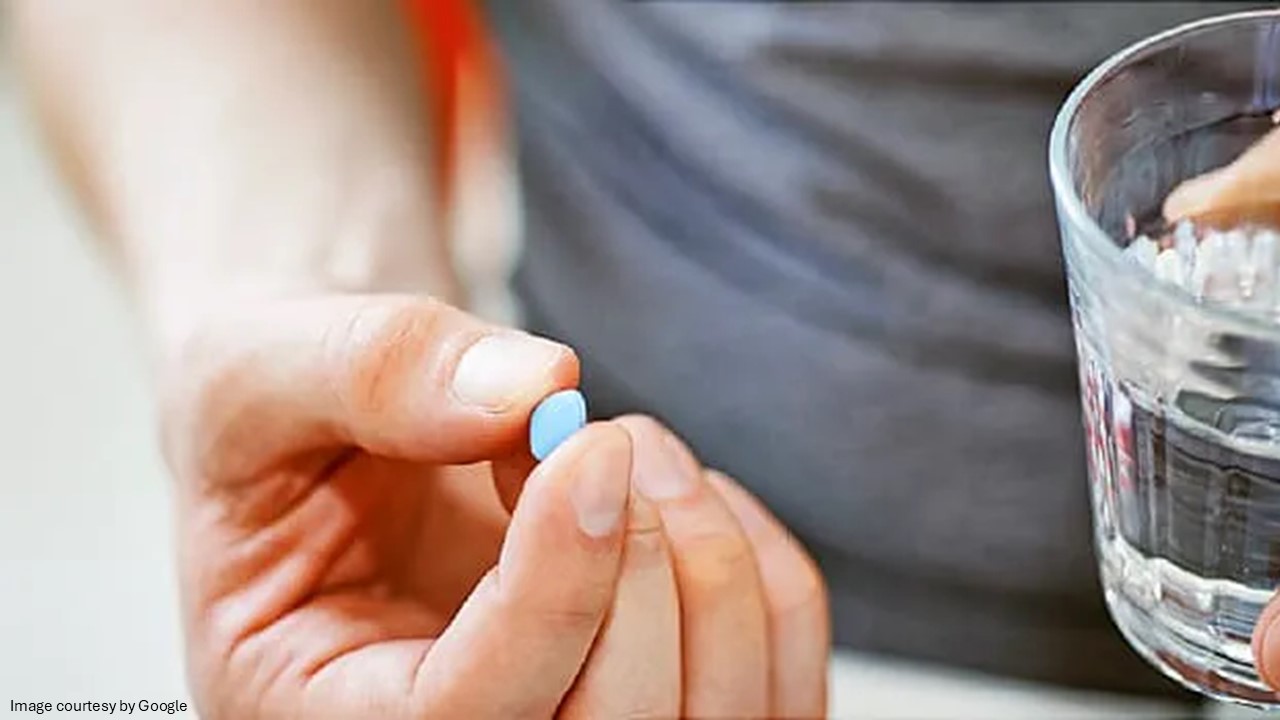Numerous research studies have evaluated tadalafil for the treatment of lower urinary tract symptoms associated with benign prostatic hyperplasia. This blog will provide you with the facts related to tadalafil and prostate health.
What is tadalafil?
Tadallafil 5mg once a day has been licensed for symptoms of benign prostatic hyperplasia (BPH in adults. It is thought to relieve symptoms of BPH by causing relaxation of the smooth muscles and increasing blood flow to the bladder, prostate, and urethra. There are currently three major classes of medicines that treat BPH, including alpha blockers, 5-alpha reductase inhibitors (5-ARIs), and phosphodiesterase 5 (PDE5) inhibitors. Among all three PDE5 inhibitors, tadalafil for prostate is a more recently approved class of medication. Alpha blockers, such as tamsulosin, relax the tissue and muscle surrounding the prostate. Whereas 5-alpha reductase inhibitors like finasteride and dutasteride cause the shrinkage of the prostate gland over 6 to 12 months.
In 2011, tadalafil received approval from the US Food and Drug Administration (FDA) for daily use in the treatment of men with enlarged prostate, or BPH. It is the same medication used for erectile dysfunction in men, but it is just taken daily as a lower dose. This can be beneficial for both urination and sexual functioning in men with an enlarged prostate.
What is BPH (benign prostatic hyperplasia)?
BPH is a health problem in ageing men and is often associated with lower urinary tract symptoms (LUTS). In most men, BPH do not cause recognisable symptoms. About one-third of men in the USA, however, can experience the following symptoms:
-
- Difficulty initiating a urine stream
- Weak urine stream that starts and stops
- Feeling that the bladder has not emptied even after you just finished urinating.
- An increased urge to urinate at night
BPH is caused by increased cell proliferation, along with induced smooth muscle contraction in the prostate. The condition is associated with prostatic enlargement and bladder outlet obstruction that can contribute to LUTS. These symptoms have a negative impact on a man’s quality of life, which is why it is essential to treat the condition. Although surgical interventions exist for treating the symptoms, treatment with medicines is often considered the treatment of choice due to their minimal invasiveness and high degree of effectiveness. Over time, BPH can contribute to serious problems such as kidney impairment, bladder damage, and urinary tract infections. Initial treatment includes behaviour changes, such as reducing excessive caffeine intake.
Men suffering from BPH typically have the option to begin treatment with tamsulosin, doxazosin, terazosin, finasteride and dutasteride. Although both classes of medications mentioned above contain ‘alpha’ in their names, the mode of action of these medicines is completely different. Alpha blockers cause relaxation of the smooth muscle in the bladder neck and prostate, thereby improving urine flow and relieving urinary obstruction. While alpha-blocker medications begin to act quickly within a week, medications belonging to the 5-alpha reductase inhibitor class target the hormonal issues related to BPH, thereby helping to improve urinary flow. And if taken long enough under medical supervision, it can shrink the prostate size and delay the need for surgery.
Complete effects with 5-alpha reductase inhibitors take longer to appear and are typically achieved after six months of regular use. The effects of these two medications increase when they are used together. When the medications are not enough, healthcare specialists can offer surgical treatments which include prostate resection, implants (a method to lift and hold the prostate tissue so it no longer avoids the urethra), steam vaporisation (the technology uses steam to remove excess tissue), and laser ablation (a laser is used to remove excess tissue). Even these surgical procedures can have sexual side effects.

Addition of tadalafil to the treatment program
Many men receiving treatment with alpha blockers, 5-alpha reductase inhibitors, or both experience that these medicines mess with the libido, erectile function and ejaculation. To address these unwanted effects, healthcare specialists have begun incorporating tadalafil medicine into these medications. Furthermore, the FDA also approved tadalafil for the treatment of BPH symptoms. Therefore, in men with BPH, tadalafil shows double effectiveness; besides helping with urination, it also helps restore erectile dysfunction.
How does tadalafil work?
Tadalafil helps in maintaining an erection by increasing the flow of blood to the penile organ when a man is sexually aroused. With an effectiveness of up to 36 hours, this ED medication allows men to choose when to indulge in sexual activities without the need to fix a time, showing positive results in most cases. The good news is that the science backs the practice of adding medications that are mainly aimed at restoring erectile dysfunction to the BPH treatment regimen. The results were very positive, with significant improvements in sexual desire, erectile dysfunction, orgasmic function and overall sexual satisfaction experienced by those who took tadalafil with finasteride. Moreover, the side effects experienced by these people were few and tolerable.
Verdict!
If you or your loved ones are dealing with sexual issues because of BPH medications like finasteride and are not already receiving tadalafil, be sure to discuss this with your healthcare specialist. Incorporating an ED medication like tadalafil into your treatment regimen can help support your sex life as well as symptoms of BPH itself.
Tadalafil is one of the most extensively evaluated phosphodiesterase type 5 inhibitors used for the treatment of BPH/LUTS. The data from tadalafil research studies suggest that tadalafil 5mg, taken once a day, is a safe and effective treatment option for this indication. Due to its hormonal effects, lower-dose finasteride is also prescribed for the treatment of male pattern hair loss. Finasteride may also affect sexual functioning as well as male fertility. If you are taking finasteride to prevent male pattern baldness and are experiencing erectile issues or fertility problems, make sure you inform your healthcare specialist.




